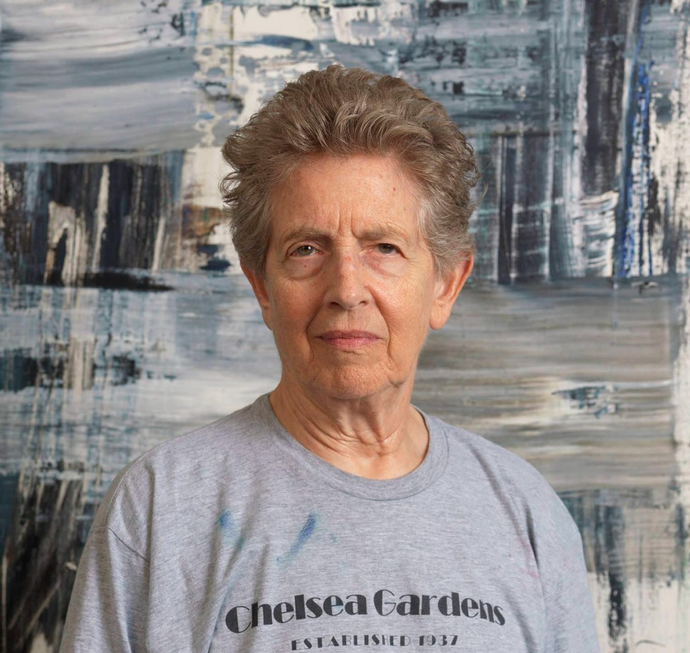
Louise Fishman
Louise Fishman, an American abstract painter, created art inspired by cultural, political, and emotional experiences.
Biography of Louise Fishman
Born in 1939 in Philadelphia, Pennsylvania, USA, Louise Fishman embarked on her artistic journey with education at the Philadelphia College of Art in 1956-1957. Following this, she continued her studies at the Pennsylvania Academy of the Fine Arts in 1958 and earned her BFA and BS from the Tyler School of Art in Elkins Park, Pennsylvania. In 1965, Fishman obtained her MFA from the University of Illinois at Urbana–Champaign.
After completing her MFA, Fishman worked as a library assistant at Cooper from 1966 to 1968 and served as an adjunct instructor at the college. During the 1960s, she exhibited sporadically, focusing on grid-based work.
Fishman became actively involved in the feminist movement in the late 1960s and early 1970s, participating in protest groups such as WITCH (Women’s International Terrorist Conspiracy from Hell). In the later 1970s, her abstract work became associated with Pattern painting.
In 1980, she was one of the ten invited artists featured in the main event of the Great American Lesbian Art Show. In the fall of 2011, Fishman concluded her residency at the Emile Harvey Foundation in Venice.
Her artistic contributions are housed in various prestigious collections, including the Metropolitan Museum of Art, New York; the Whitney Museum of American Art, New York; the National Museum of Women in the Arts, Washington, D.C.; the High Museum of Art, Atlanta, Georgia; and the Jewish Museum, New York, among others.
Louise Fishman passed away in New York City on July 26, 2021.
Louise Fishman's Art Style
Louise Fishman's art style is defined by bold, expressive brushstrokes that delve into themes of gender, identity, and power.
Active in the feminist movement during the late 1960s and early 1970s, Fishman briefly departed from painting to engage in sculptural and material explorations, pursuing a more distinctly feminine artistic expression. Her return to painting was marked by the influential 1973 "Angry Women" series, portraying key figures in the feminist movement.
In 1988, Fishman's transformative journey with a Holocaust survivor, spanning Auschwitz, Terezin, Warsaw, Prague, and Budapest, profoundly impacted her artistic identity. This experience altered her creative approach and prompted a deeper exploration of her Jewish heritage.
In the early 1990s, Fishman revisited painting grids, presenting them in a slightly modified format. Throughout her career, she demonstrated a dynamic evolution in style and subject matter, reflecting her engagement with social and personal narratives.
Years:
Born in 1939
Country:
United States of America, New York